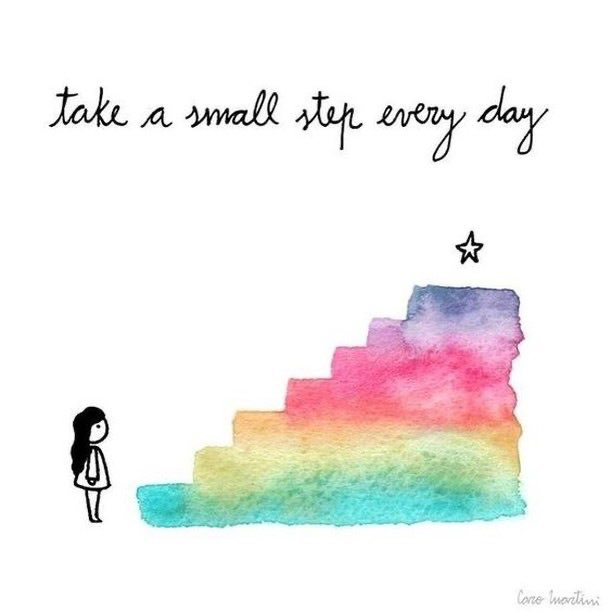Where one is present, the other appears.
How I see the situation:
Whenever I’m confronted with the topic of someone being unable to freely connect with another person or other people, I think of my own situation, because I couldn’t do it either.
Whether nice or not, I admit that, for me too, the connection was about ensuring that I was loved, validated, acknowledged, and found interesting. It gave me the feeling of belonging somewhere and the assurance that no one would ever leave me.
Nowadays I see it clearly, it is a pattern coming from childhood, when we didn’t feel secure. We didn’t see or experience healthy patterns that could form a normal relationship in the present.
As long as we don’t clearly see this part of our lives and the impact of these relationships on us, we are keeping ourselves in the dark. We unconsciously reject a situation where we could become emotionally close to someone or something we feel amazing. By rejection, I don’t just mean running away from a person, but also wanting to cling too strongly to this person. Here, we reject a healthy connection to ourselves. We think that we are not enough and loveable and because of that we are always fixated on the other person.
Why is that? Because we are afraid of being abandoned.
When we get involved with someone who then sees us as we truly are, there is the risk that they will leave us because they realize we are not good enough for them.
We don’t love ourselves enough, so how can someone we admire so much love us? And if they do, for how long? And is what we find fantastic about them really that fantastic? Aren’t we just putting them on a pedestal?
We do not trust ourselves and therefore we do not trust them.
If I don’t get emotionally involved in a relationship, I don’t lose anything.
Overcoming the fear of abandonment and fear of commitment
Fear of commitment or fear of abandonment can be very burdensome for a relationship, even if these feelings are not immediately obvious. Fear of commitment and fear of abandonment are closely linked: those who do not fully commit to others do not need to fear loss. There is also talk of active and passive fear of commitment, and it is not uncommon for a partner with a fear of loss to be with a partner who has a fear of attachment.
This is completely understandable; it’s all about energy. If one person wants to bond too strongly, the other will pull back too quickly. The relationship remains harmonious only as long as the childhood patterns in one party have not yet been activated.
Often, experiences of rejection in childhood or adolescence can lead to such an inner emptiness that they are no longer willing to risk further losses by forming attachments.
Possible cases of fear of abandonment and fear of commitment
- Lack of stability and security in childhood
- Traumatic experiences during youth
- Pain from extreme separation situations later in life

Fear of abandonment
Fear of abandonment often manifests as clinging tightly to a relationship, friends, or a job. Even a bad job can trigger these fears, or one might stay in a harmful relationship just to avoid separation.
The ambivalence between the fear of losing someone and the simultaneous conviction of being abandoned often leads to a vicious cycle of supportive reactions and confirmed fears – a self-fulfilling prophecy.
Fear of abandonment often leads to a compulsion to control, which heavily burdens the relationship. Out of fear of losing something or someone, the affected person tries to control everything, even when it is practically impossible.
Symptoms of fear of abandonment
- Clinging: you are constantly attached to someone because of fear of losing them.
- Overprotectiveness: You try to shield your loved ones from potential dangers.
- Jealousy: Even a conversation between your partner and someone else makes you jealous.
- Controlling behavior: You find it hard to trust other people.
- Seeking validation: You constantly seek recognition and confirmation from your surroundings.
- Low self-esteem: You doubt yourself and feel not good enough.
- Dependency: You become emotionally dependent on your partner.
- Fear of attachment: Your fear of losing a loved one can also lead to fear of attachment.

5 TIPS on overcoming your fear of abandonment:
1. Identify the causes of your fear of abandonment:
Try to pinpoint what experiences triggered your fears. In which situations do the symptoms of fear of abandonment arise most strongly? This isn’t always easy and may bring up painful memories.
2. Allow yourself to feel:
It’s helpful to acknowledge your emotions in the present, observe them, and let them flow through you. By consciously recognizing how strongly you experience fear of abandonment, you can more easily identify and overcome potential triggers.
3. Practice positive self-talk:
Saying something nice to yourself at least once a day can boost self-confidence, self-esteem, and self-awareness. Positive affirmations are a good starting point.
4. Focus on your strengths, start living your own life:
Naturally, you won’t achieve everything overnight. But the more satisfied you are with yourself and recognize your worth, the more relaxed you’ll become, and the less fear of loss you’ll have. Engage in hobbies and activities that bring you joy.
5. Try relaxation exercises:
Whether it’s meditation, autogenic training, or anything that calms you and promotes passive concentration, incorporating relaxation techniques into your routine can help manage fear of loss.
Fear of commitment
Partners of individuals with fear of commitment often notice how their partner withdraws more as they try harder to connect with them. The withdrawal often occurs suddenly and unexpectedly, even if the relationship seems harmonious. A typical example is planning to move in together or going on a vacation together. Suddenly, the partner withdraws, doesn’t communicate for days, or makes excuses for not spending time together. Minor disagreements become more frequent, leading to questioning the entire relationship.
What is the active fear of commitment?
This phenomenon involves fighting for a partner and then shortly after rejecting them. Those affected have a great fear of committed relationships and feel trapped, leading them to flee the relationship. Secretly, they yearn for a partner to alleviate their fear of commitment and often find what they seek in passive caregivers.
What is the passive fear of commitment?
In contrast to active fear of commitment, passive fear of commitment involves a desire to keep the partner close at any cost. They primarily seek an active commitment partner and aim to break through the distance created by their partner. They try to build a bond with their partner through jealousy or by presenting a particularly perfect image of themselves. They feel dependent on their partner.
Recognizable signs of existing fear of commitment
- Emotional coldness: Sudden or increased emotional coldness in the relationship.
- Ambivalence: Strong need for closeness followed by distancing.
- Fear: Fear of commitment, fear of uncertainty.
- Avoidance: Avoidance of making concrete future plans or meeting with the person.
- Escape: Engaging in long-distance relationships or frequent casual affairs.
- Poor relationships: Few to no close friendships.
- Expectations: Excessive expectations of the partner.
- Communication blocks: Difficulty in communication and avoidance of personal conversations.
- Suppressed feelings: Feelings of powerlessness and helplessness.
- Jealousy
- Tendency towards arguments with withdrawal

5 TIPS on overcoming your fear of commitment:
1. Accept the fear:
Learn to acknowledge and accept your fear. Suppressing it only denies you the opportunity to find ways to cope with it.
2. Be patient:
It takes time. For those with fear of commitment, building a relationship slowly, step by step, and paying attention to how much attachment is “too much” can be helpful.
3. Seek support from your partner:
Prefer potential partners who take your fear of commitment seriously and are supportive of you.
4. Practice positive self-talk:
Saying something nice to yourself at least once a day can boost self-confidence, self-esteem, and self-awareness. Positive affirmations are a good starting point.
5. Seek help when necessary:
Therapy is rarely necessary for everyone, but seeking help when needed can be beneficial. Most people with fear of commitment can enter into happy relationships. However, managing anxiety consciously and doing everything possible to balance oneself is crucial.
Finding a solution often involves both parties working on themselves, perhaps taking a step back from each other to return with more balanced energies.
Trust is essential, both in ourselves and in our partners.
Love, honest communication and trust will open the hearts when the time is right.

Written by: Agnes Szabo
Transformational coach, life coach and autogenic training therapist





